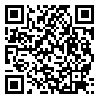Volume 2, Issue 4 (Jan-March 2014)
JCHR 2014, 2(4): 253-260 |
Back to browse issues page
Download citation:
BibTeX | RIS | EndNote | Medlars | ProCite | Reference Manager | RefWorks
Send citation to:



BibTeX | RIS | EndNote | Medlars | ProCite | Reference Manager | RefWorks
Send citation to:
Dadbinpoor A, Haghdoust A M H, Movahedi M B, Rasti A. Evaluate the Effectiveness of Infant Vaccination in Adulthood. JCHR 2014; 2 (4) :253-260
URL: http://jhr.ssu.ac.ir/article-1-142-en.html
URL: http://jhr.ssu.ac.ir/article-1-142-en.html
Abstract: (6013 Views)
Introduction: Viral hepatitis is one of the causes of premature death in world peoples, according to WHO reports, five percentage of people are carrier, lethal from this disease is 1%, therefore about 1-1.5 million people each year die from complications of this disease. This disease varies from an acute to chronic illness. The aim of this study was to determine the level of anti-HBs Ag (hepatitis B surface antigen) in vaccinated children that born in Abarkouh city in 1992 in order to evaluation of the efficacy childhood hepatitis B vaccination in adults .
Materials and Methods: We measured anti-HBs Ag concentration in blood sera of 102 adult peoples than 600 new born children that vaccinated in 1992. Five milliliters (5ml) of blood sample was taken from 102 cases (33 male and 69 female).
Results: All blood samples were analyzed for anti-HBs Ag by ELISA method. 94 out of 102 samples (92.2%) showed anti-HBs Ag concentrations higher than 30 Iu/ml (positive) and, 4 out of 102 samples (3.9%) showed anti-HBs Ag concentrations less than 10 Iu/ml (negative), 4 out of 102 samples (3.9%) showed anti-HBs Ag concentrations between 10-30 Iu/ml (border line) considered immune after 20 year after the third dose of the vaccination. Non signifi-cant association in males and females (93.9% vs.97.1%) (P=0.390, df= 1, (2=.0.555)
Conclusion: our results reinforce the importance of hepatitis B vaccine in new born and efficacy of HBV vaccination in Abarkuh (Yazd province) is in the WHO standards.
Review: Research |
Subject:
Public Health
Received: 2014/04/5 | Accepted: 2014/04/5 | Published: 2014/04/5
Received: 2014/04/5 | Accepted: 2014/04/5 | Published: 2014/04/5
| Rights and permissions | |
 |
This work is licensed under a Creative Commons Attribution 4.0 International License. |





